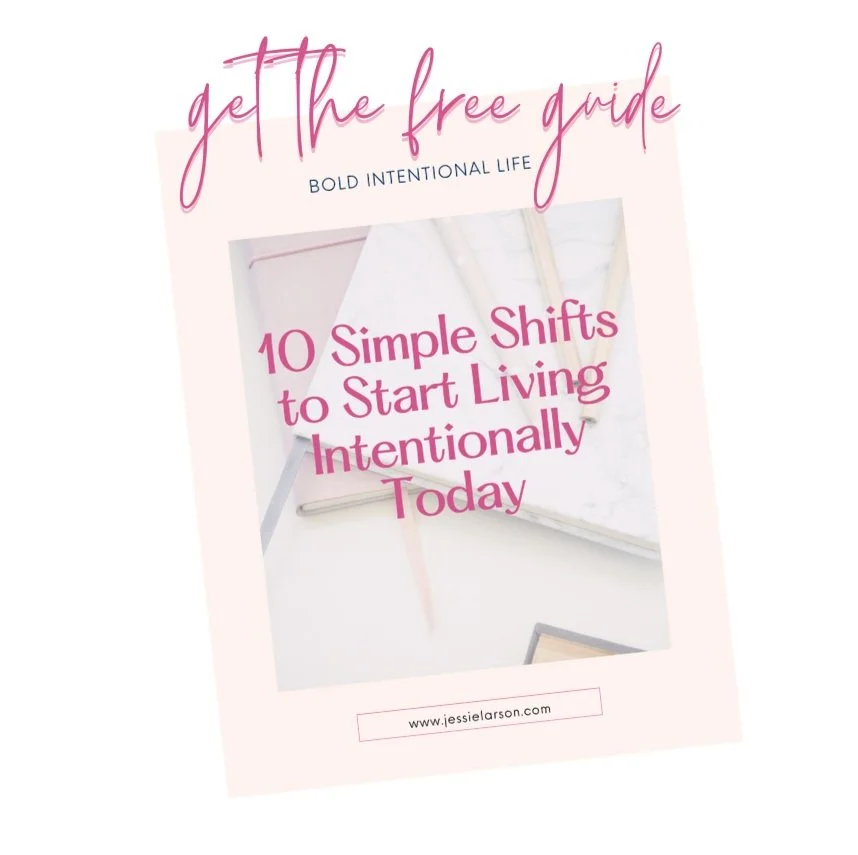Normal Labs, Still Feeling Awful? Unpacking Hormone Imbalance & Optimization
Your Labs Are Normal”—But You Still Feel Off?
Let’s Talk Hormones, Health, and Getting Answers
You know that moment when you finally drag yourself to the doctor because you’ve been feeling off? Tired. Foggy. Irritable. Moody. Losing patience over little things. Not sleeping well. No energy, no motivation, no sex drive, maybe even gaining weight despite doing "everything right"?
So you get the blood drawn, it gets sent to the lab, and a week later the call comes in:
“Good news! Your labs are normal!”
And you’re left standing there thinking (screaming on the inside)… okay, but why do I still feel like crap?
If that sounds familiar, you are so not alone—and this week’s episode of the Bold Intentional Life podcast is one you don’t want to miss. I sat down with hormone health expert and long-time friend Carly Franc, and let me tell you—this conversation was a game-changer.
Carly is a Doctor of Nursing Practice, a Certified Nurse Midwife, and the founder of Reborn Aesthetics and Wellness in Northern Utah, where she specializes in hormone optimization. She's also a big believer in getting to the root cause of why you feel the way you do, and not just settling for "you're fine" when your labs say otherwise.
Because the truth is: your symptoms are real. And you deserve better answers.
Click here to listen now! ⬇️
You Can Feel Off Even if Your Labs Say "Normal"
Here’s the thing: the way you feel matters. Even if your lab results fall within the “normal” range, that doesn’t always mean your body is functioning optimally.
What’s normal on paper might still feel completely off in your actual life.
That’s because most standard lab panels are too limited, the reference ranges are too wide, and—honestly?—a lot of providers simply aren’t trained to look deeper when it comes to hormone health, especially for women.
So if you’ve been told “you’re fine” while your body is waving red flags left and right, you have every right to advocate for more.
What’s Actually Happening to Your Hormones?
You may have heard of menopause, but what about perimenopause?
This is the stage before menopause, and it can start as early as your mid-30s (yes, really). It’s when your hormones—especially estrogen and testosterone—begin to fluctuate and decline. And that shift can wreak havoc on how you feel physically, mentally, and emotionally.
The problem? Most of us aren’t told this. We think (or we are told this by the doctors…) it’s just “mom life,” or we’re too stressed, too tired, or not doing enough. We blame ourselves, or worse, we start to believe maybe this is just what it feels like to get older.
But you don’t have to accept feeling like a dulled-down version of yourself. There’s so much we can do when we start looking at the full picture.
What to Ask For: Comprehensive Labs That Actually Help
If you suspect hormones might be at play, you need more than just a TSH (thyroid) test. Carly shared what a truly comprehensive hormone panel looks like:
Complete Blood Count (CBC)
Comprehensive Metabolic Panel (CMP)
Vitamin D and B12 levels
Full Thyroid Panel – including TSH, Free T3, Free T4, and thyroid antibodies
Hormones – FSH, estradiol, testosterone
(Men should also ask for a PSA test.)
These labs can give you and your provider a clearer picture of what’s really going on so you can stop guessing and start healing.
Yes, You Probably Need More Testosterone
Here’s something that blew my mind: by age 40, most women have lost around 50% of their testosterone. And it’s not just a “male” hormone—women need it too.
Low testosterone in women can show up as fatigue, brain fog, decreased libido, mood swings, and difficulty building (or maintaining) muscle. It’s one of the biggest missing links in why so many women don’t feel their best—and yet it’s rarely tested or discussed in a regular checkup.
Hormone Therapy, Demystified
Hormone therapy can sound scary or controversial—but Carly explained it in a way that just makes sense. She focuses on bioidentical hormones, which are structurally the same as the hormones your body naturally produces.
The goal? Not to override your body, but to support it. When done correctly and monitored by a trained professional, hormone optimization can help reduce the risk of chronic diseases and help you feel more like yourself again—clearer, stronger, and more energized.
What I’ve learned is that informed and personalized hormone optimization—especially using bioidentical hormones—can be a life-changing tool for women in their 30s, 40s, and beyond.
It’s not about “replacing” your hormones—it’s about supporting your body so it can function better. With the right provider, the right labs, and the right protocol, it can be incredibly safe and effective.
Hormones & Lifestyle: It’s a Two-Way Street
Carly and I both agreed—no matter how dialed in your hormones are, you still need the foundation of a healthy lifestyle. That includes:
Nourishment – Eat real, whole food with plenty of protein
Movement – Especially strength training (hello, muscle and metabolism!)
Stress management – Because cortisol is a hormone, too
Sleep – Non-negotiable for recovery and balance
Mental health – Emotional well-being matters just as much as physical
Optimized hormones can give you the energy and motivation to show up for your life. And your daily habits? They support and sustain that hormonal balance. It's a full-circle approach.
Be the CEO of Your Health
You don’t have to wait until you hit rock bottom.
You don’t have to settle for “fine.”
And you definitely don’t need to wait for permission to feel good in your own skin.
This is your reminder: You are allowed to advocate for yourself. You are allowed to ask more questions. And you are more than capable of becoming the CEO of your health.
Whether you’re just starting to explore hormone health or you’ve been dismissed one too many times, let this be your nudge to dig deeper. You deserve vibrant energy, mental clarity, confidence, strength, and a body that works with you—not against you.
You deserve to feel like you again.
How to Find a Provider You Trust
That’s the magic question, right?! Finding someone who will actually listen to you, not dismiss your concerns, and not just tell your it’s normal to feel like garbage. One thing we all know is that not all hormone providers are created equal.
Carly encourages women to do their research—look for providers specifically trained in hormone health, read reviews, ask questions, and most importantly: listen to your gut.
If you feel dismissed or brushed off, that’s a red flag. Keep looking. You deserve a provider who listens, empowers you, and partners with you in your health.
P.S. If you’re in Northern Utah, Carly France is someone I wholeheartedly recommend. She gets it. She’s walked the path of traditional medicine and now runs a thriving wellness practice focused on helping women and men feel their absolute best. You can find her at Reborn Aesthetics and Wellness. And even if you are not local- message her- talk to her and she can point you in the right direction.
Ready to Feel Better?
If you've been dismissed, if you're sick of being tired, or if something inside you is whispering, “there has to be more than this,” this episode is your invitation to dig deeper, advocate harder, and reclaim your health.
🌿 Connect with Carly:
Instagram: https://www.instagram.com/reborn.aesthetics.and.wellness/
Let this be your reminder: You don’t have to settle. You’re allowed to feel amazing in your body. You’re allowed to ask for more. And you’re absolutely capable of becoming the CEO of your own health.
Here’s to living boldly and intentionally,
Jessie
Resources & Links You Need To Support You In Living Bold and Intentionally
Delegate to your kids and Simplify With Zone Cleaning
Get Help Setting Up Your Systems!
Free Weekly “Start with Intention” Call: Join me every Monday at 11:00 am MST for our free “Start with Intention” Call. SIGN UP HERE!
5 Minute Meditations for Kids: Build healthy mental habits for the whole family with this great resource. You can listen on Spotify (with video), on Apple, and we are also on YouTube.
One-on-One Coaching and Systems Strategy Calls: If you want personalized help, click here to book a discovery call!





